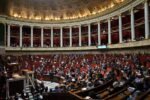U.S. President Donald Trump has signed an executive order significantly expanding White House control over independent regulatory agencies, raising concerns about presidential overreach and the future of institutional checks and balances.
The order requires independent agencies, such as the Securities and Exchange Commission (SEC), the Federal Trade Commission (FTC), and the National Labor Relations Board (NLRB), to submit regulatory proposals for White House review. Additionally, it grants the president authority to block funding for projects that do not align with his policy priorities and mandates that agencies adopt legal interpretations from the Department of Justice as binding.
Legal experts warn this move undermines the independence of regulatory institutions that Congress has safeguarded since the 1880s. “This is a significant blow to independent agencies,” said Peter M. Shane, a legal scholar at New York University.
While the Federal Reserve is partially affected by the order, its authority over monetary policy decisions, such as interest rate adjustments, remains intact.
This measure builds on past efforts to centralize executive power, including Ronald Reagan’s 1981 initiative requiring regulatory reviews by the White House. However, Trump’s order extends this control over traditionally independent agencies, a move critics argue threatens the institutional balance between branches of government.
Legal challenges are expected, with opponents likely to bring the issue before the Supreme Court. If upheld, the order could make Trump the most powerful president in U.S. history, reshaping the role of the executive branch for years to come.







